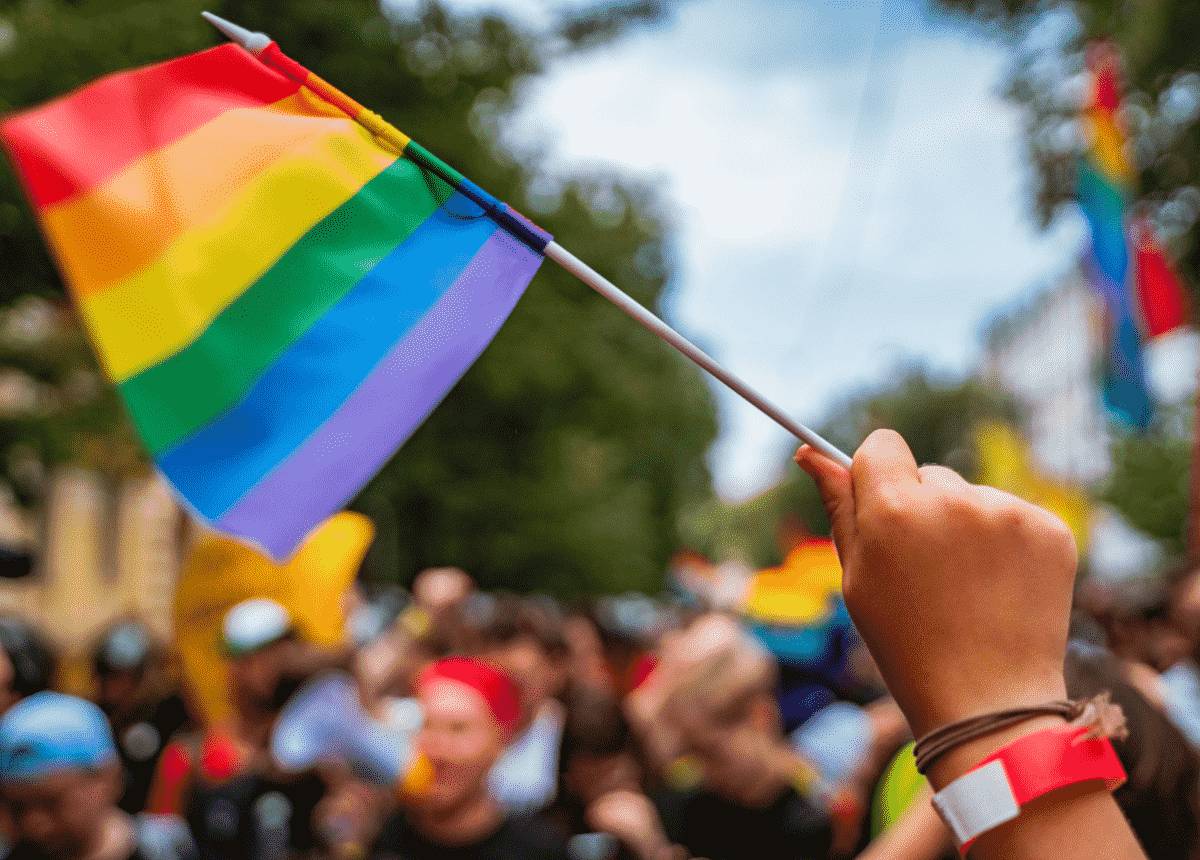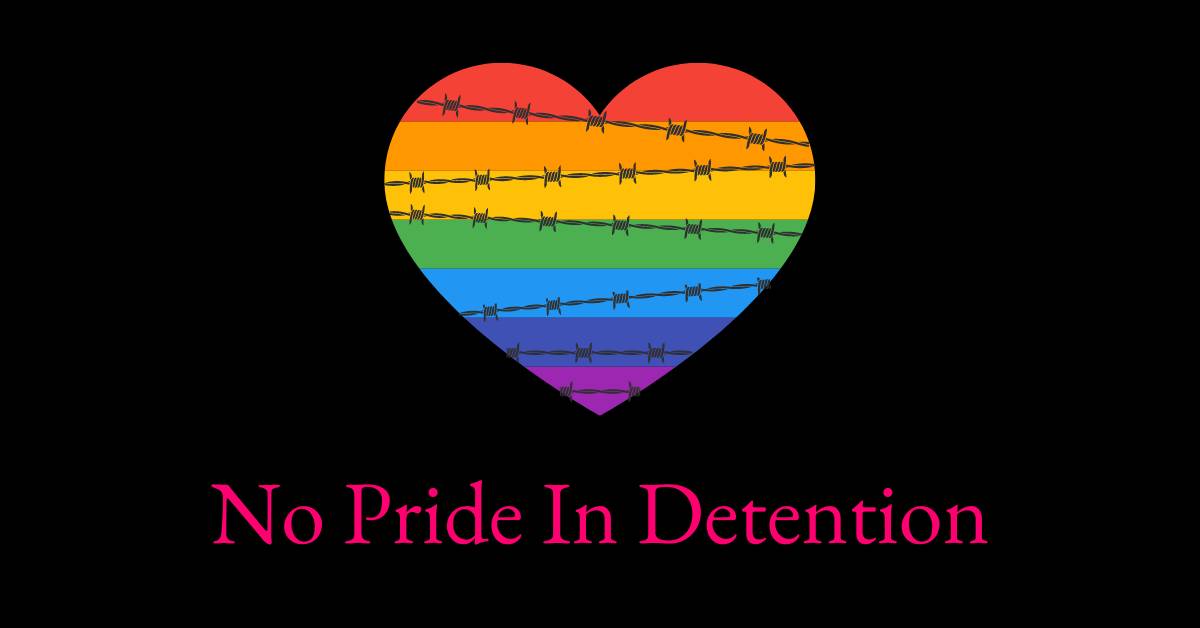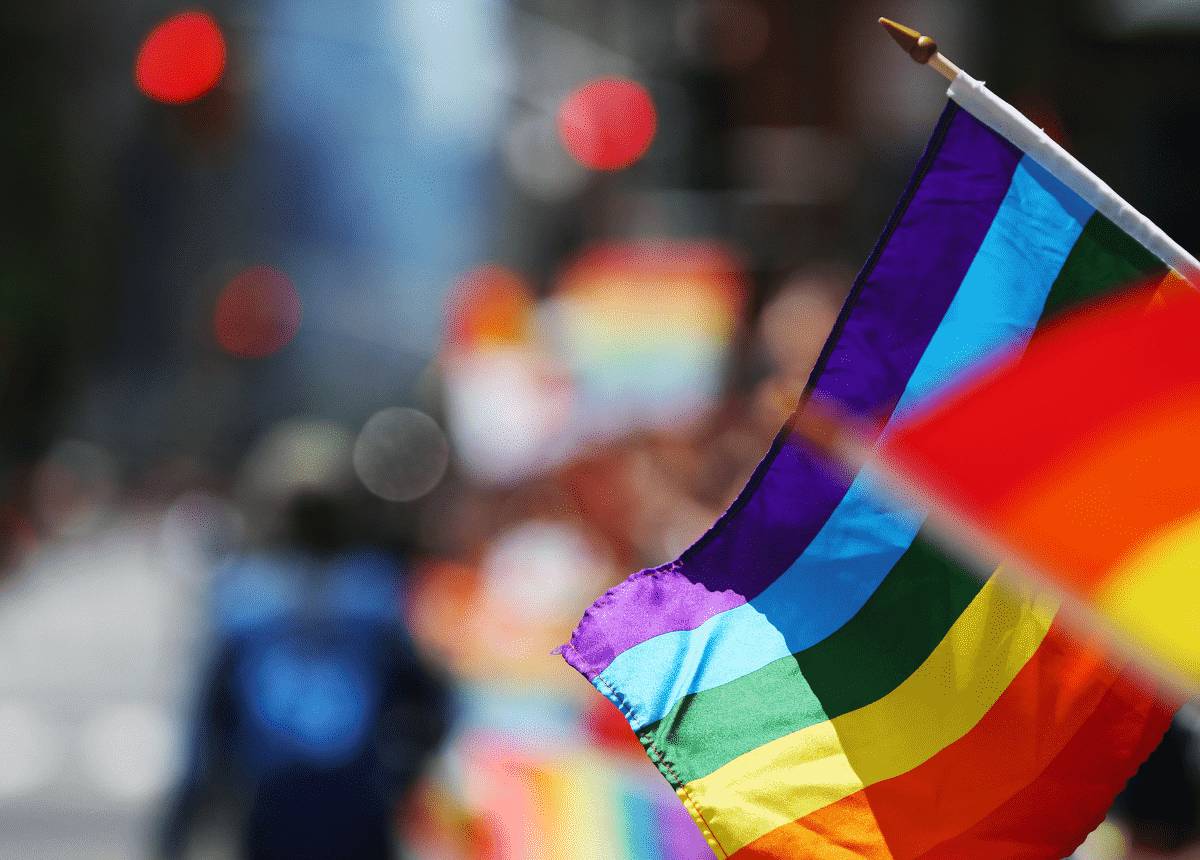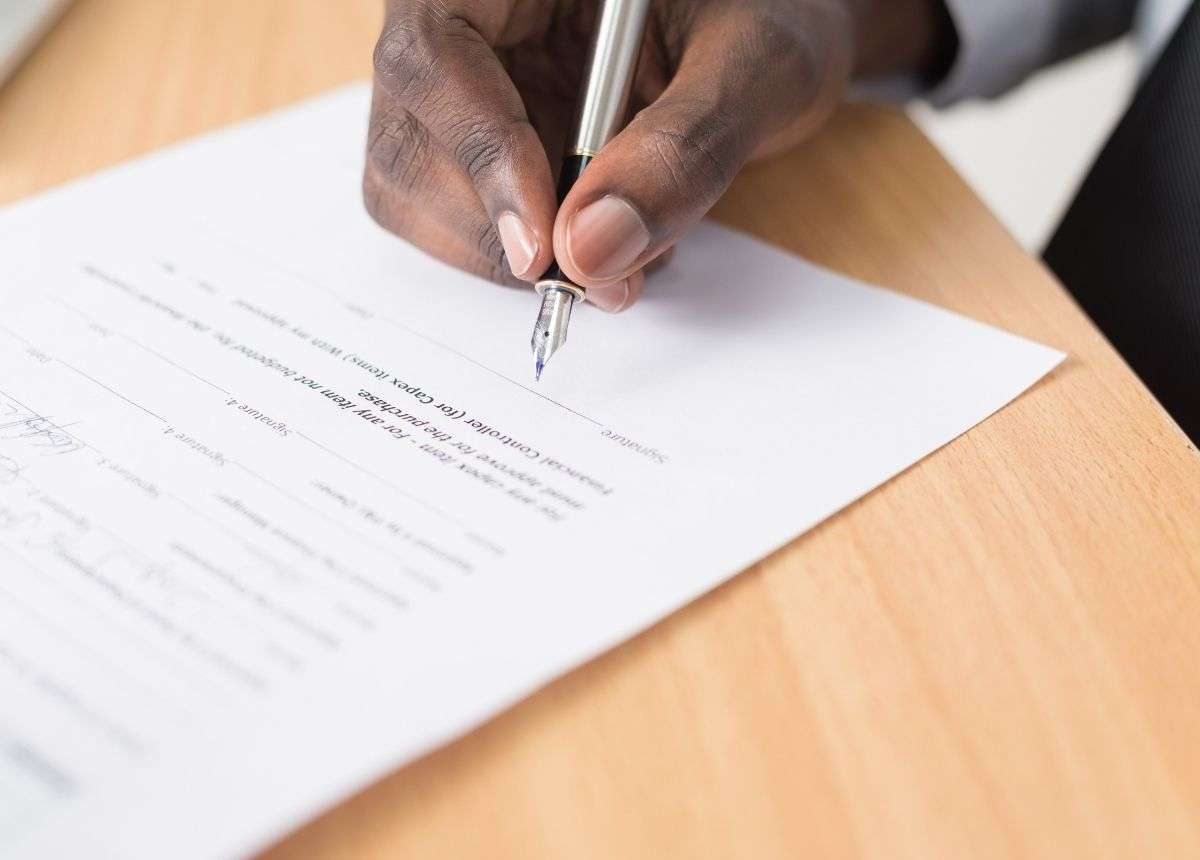No Pride in Detention: End the Detention of LGBTQ+ People
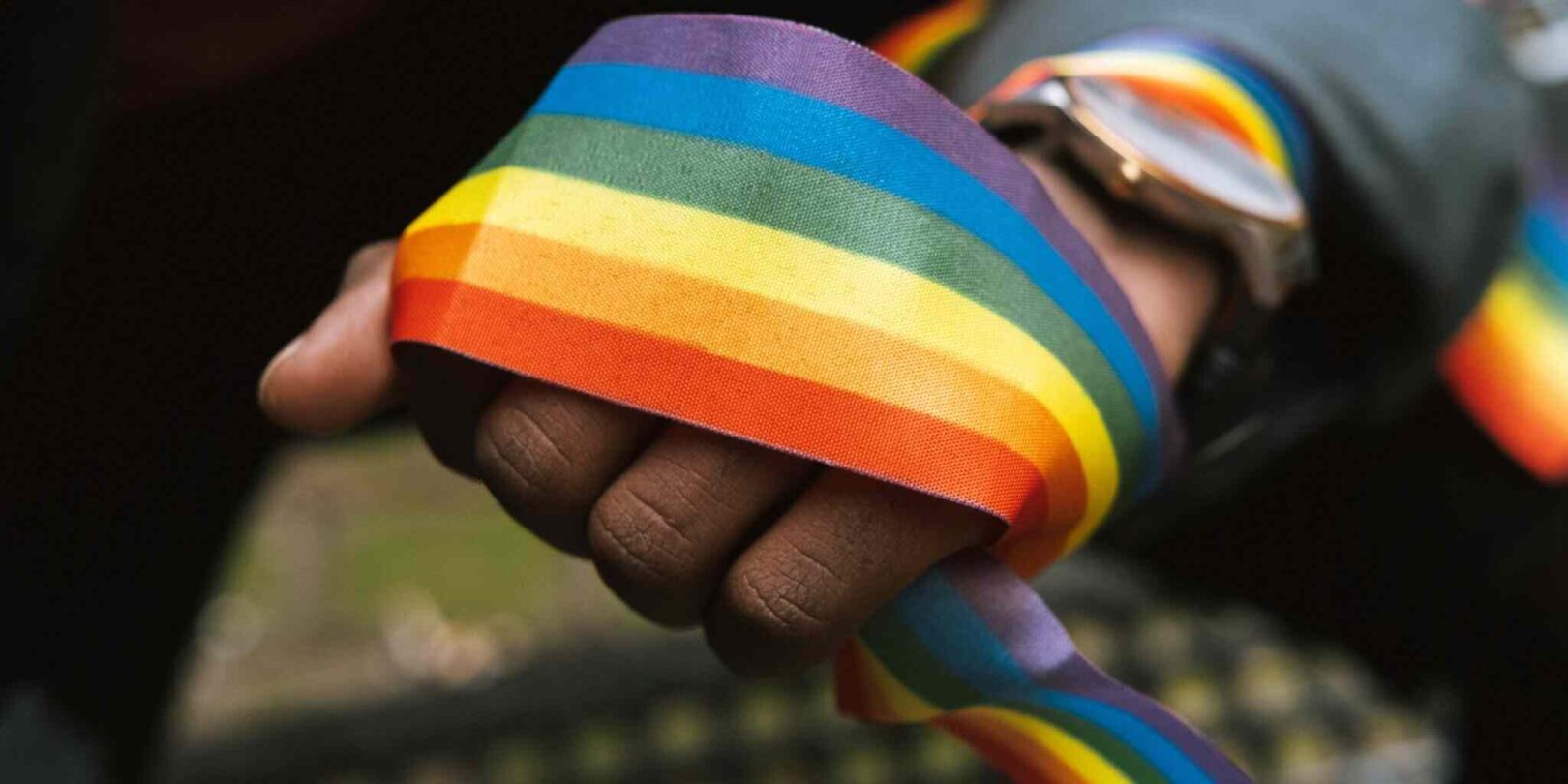
By Qussai Ramzi, this article was originally published at IMIX. Qussai Ramzi is a member of Rainbow Migration‘s campaigns advisory group
When I think of pride, I think of joy and freedom, of celebrating one’s identity and all its intersections both inwardly and outwardly. I also think of celebratory marches decorated with rainbow flags that tower over the streets and buildings, of all the times I’ve marched hand-in-hand with friends and family (chosen and otherwise), showing up in our full glory.
The chants of our pride are far-reaching, but there are places where they do not echo. Surprisingly, these places actually exist in this country. They are places where pride does not occur and within whose walls people yearn to celebrate with us and to enjoy the same freedoms we enjoy and take for granted, but can’t.
These places I am talking about are none other than the immigration detention facilities that are scattered all over the UK. Their intent is to police, among others, those who come to this country seeking safety from persecution for reasons that include their sexual orientation and gender identity/expression. Behind the walls of these facilities, visibility can be dangerous, and the suppression of gender and sexual diversity can be imperative to survival.
We are not all born equal, and this is a fact illustrated by the mere idea that some of us must claim asylum to evade death and persecution, and in the process will be subjected to not only the fatal process of fleeing, but also to being locked up upon reaching “safety”.
The right to asylum is enshrined in the Universal Declaration of Human Rights and the 1951 Refugee Convention, of which the UK is a signatory. Why then, are those seeking asylum continually framed as a security threat? And why are human rights slowly being dismantled at every juncture in the UK? As the government is trying to rid itself of its responsibilities by passing the Nationality and Borders Act and by sending people seeking safety in the UK 4,000 miles away to Rwanda, unknown numbers of LGBTQI+ people are being held in immigration detention, not knowing their fate. They are detained without courts or judges, in prison-like conditions, and for unlimited amounts of time.
Conditions in immigration detention are not good for anyone and are particularly unsafe for LGBTQI+ people, for whom the impact of detention can be devastating. It deprives them of their freedom and cuts them off from support networks. For those trying to “prove” their sexual orientation or gender identity to the Home Office as part of an asylum claim, being forced into the closet to stay safe in detention is a huge setback. LGBTQI+ people in detention experience discrimination, bullying and violence, which can re-traumatise those who have fled violent persecution elsewhere.
I am not new to campaigning on human rights issues. When approached to join Rainbow Migration’s Campaigns Advisory Group, I felt it important to call for an end to LGBTQI+ detention and a 28-day time limit for all immigration detention. I’ve worked on Refugee and Migrant Rights campaigns before as part of my role at Amnesty International UK, and have worked with refugees in detention at The Bike Project and heard heartbreaking stories. Their stories and their tireless calls for an end to detention remain widely unheard, and are outside the scope of most LGBTQI+ rights campaigns.
We launched our campaign No Pride in Detention: End the Detention of LGBTQI+ People, because nobody should be detained indefinitely with no idea when they might be set free, and no LGBTQI+ person should be locked up and subjected to LGBTQI-phobic bullying and abuse. The engagement and mobilisation of LGBTQI+ communities on this issue is imperative to affecting change, and if enough people are willing to take action, enough pressure can be placed on the government to reform this issue, and the wider injustices of the immigration/asylum system.
Strides have been made already, with the government recognising that trans and intersex people are particularly at risk of harm in detention and should not be detained in most circumstances. But this policy must be widened to include all LGBTQI+ people. We believe that the exclusion of LGBTQI+ people from detention will increase the pressure on government to explore and invest in alternatives to detention that are more humane and recognise the vulnerabilities and risks faced by the LGBTQ+ community. Immigration detention is not the right solution for anyone and wider reforms are needed, supporting people to resolve their immigration status within the community.
As we go out and celebrate this month, let us also try to reflect on how our freedom is tied to the freedom and liberation of others, and that we are not entirely free when some of us are locked up while seeking safety from persecution.
Let us not only envision, but also fight for a world where no-one can be held indefinitely without a charge, where no LGBTQI+ people are detained and where humane, community-based alternatives are developed.
Calling for an end to LGBTQI+ detention and a 28- day time limit for all immigration detention
With the support of five other national LGBTQI+ charities, today we are launching ‘No Pride in Detention’, a campaign calling for an end to the immigration detention of LGBTQI+ people and a time limit to ensure no-one is detained for more than 28 days.
The campaign is launching during Pride month and at a time when unknown numbers of LGBTQI+ people are being held in immigration detention in the UK, as the government does not collect or monitor data on this. They are detained without judicial oversight, in prison-like conditions, and for an indefinite amount of time.
Detention is most often used to facilitate the removal of a person from the UK, in which case there must be a realistic prospect of removal within a reasonable timeframe. However, most people detained are instead released on bail or otherwise, their detention having served no purpose other than to isolate and traumatise them.
“Detention is awful for anyone, but our research found that for LGBTQI+ people the impact can be devastating. As well as being deprived of their freedom and cut off from support networks, they face LGBTQI-phobic bullying, discrimination and abuse from staff and others in detention”, explains Leila Zadeh, Executive Director at Rainbow Migration.
As part of their asylum process, LGBTQI+ people must “prove” their sexual orientation or gender identity by providing evidence. This turns into an even more difficult task when they are locked up. As Leila describes, “people in detention can’t visit LGBTQI+ venues, join support groups or attend Prides. In fact, detention is likely to force them back into the closet to stay safe while they are detained”.
Since 2016 the Home Office has recognised that trans and intersex people are particularly at risk of harm and should not be detained in most circumstances. “We are urging the government to extend this recognition to all LGBTQI+ people”, says Leila.
From indefinite detention to a 28-day limit
The campaign is also urging the government to establish a 28-day cumulative time limit on detention for everyone. As Leila explains, “the UK is the only country in Europe where people can be deprived of their freedom indefinitely for immigration purposes. This needs to end. It separates people from their families and causes long-term damage to their physical and mental health.”
Rainbow Migration’s ‘No Pride in Detention’ campaign is launching with the support of national LGBTQI+ charities Stonewall, Mermaids UK, LGBT Foundation, African Rainbow Family and Micro Rainbow.
“During the next few months we will be bringing more LGBTQI+ organisations and individuals on board to join us in the fight to end LGBTQI+ detention. We need to come together and show this government that the LGBTQI+ community won’t stand for some of its most marginalised members being locked up in places they aren’t safe ”, says Leila, and continues, “people should be supported to resolve their immigration status in the community, which is more humane, less damaging to people’s mental and physical health, and has been shown to produce better outcomes for less money. For LGBTQI+ people, this also means being able to live more openly and access specialist support from community LGBTQI+ organisations”.
4 facts about LGBTQI+ people seeking asylum in the UK
June marks Pride Month, a time to celebrate LGBTQI+ rights and the history and contributions of LGBTQI+ people to the world. But also a time to reflect and raise awareness about the issues that many in our community still face.
We know that LGBTQI+ asylum can sound confusing sometimes, particularly when you need to go through lengthy articles with a lot of legal terms that you might not be used to. That's why, to launch Pride Month this year, we're explaining the key facts you need to know about LGBTQI+ asylum in the UK.
Why do LGBTQI+ people have to flee their countries of origin?
Across the world LGBTQI+ people suffer abuse and discrimination just because of who they are or who they love. In some countries, colonial-era “sodomy laws” make same-sex relations unlawful and punishable with prison sentences, while in others, homosexuality can even be punishable by death.
In other countries, same-sex relations are not criminalised as such, but neither are LGBTQI+ individuals protected by the State. In these places LGBTQI+ people are still at risk of abuse and discrimination and may face grave threats to their safety and lives.
For instance, it has been reported that the lives of LGBTQ+ people in Afghanistan have “dramatically worsened” under Taliban rule, while violent gangs in Central American countries single out and threaten to kill LGBTQI+ people, with trans women being at heightened risk.
What is the process for claiming asylum in the UK like for LGBTQI+ people?
LGBTQI+ people that seek safety in the UK still experience discrimination and abuse throughout the asylum process.
Our research has shown that the government routinely disbelieves LGBTQI+ people seeking asylum and disregards statements from friends, partners and LGBTQI+ organisations testifying to their sexual orientation or gender identity.
During their asylum claims, LGBTQI+ people must ‘prove’ their sexual orientation or gender identity to officials, and make sure that their ‘coming out’ story is credible enough. This is extremely difficult, and providing evidence is a huge challenge. Many will have spent years hiding who they are in their country of origin, or could put friends and exes at risk by contacting them. Even if some people can provide evidence from their time in the UK, this relies on them being “out” in a certain way, which not everyone might feel comfortable with - particularly those used to living in secret or who have experienced trauma.
Do LGBTQI+ people know that they are entitled to protection?
LGBTQI+ people often apply for asylum weeks, months or even years after arriving in the UK. Many do not know that they are eligible for refugee protection on the basis of the sexual orientation or gender identity, and some – especially younger people – may not realise they are LGBTQI+ until they have lived here for some time. People may also come to the UK as students, tourists or to work and only later become too afraid to return home, for example when word about their sexual orientation travels back home.
Where and how do LGBTQI+ people live while they are seeking refugee status?
While in the asylum process, LGBTQI+ people are usually placed in accommodation in the community with other people seeking asylum. However, many find themselves trapped in housing situations where they face harassment and abuse from other residents, who may be from the very countries they have fled. Sometimes, they can also be placed in immigration detention centres, where the isolation is more extreme and bullying and abuse are rife.
To make matters worse, people seeking asylum in the UK are not allowed to claim benefits or work. If they are destitute and have no other means of supporting themselves, they can apply to receive asylum support, which is set at around £5.66 per day, so less than £40 per week – that’s almost the price of a 7-day London travelcard.
“You bring us together, make us feel like we are all a family”
The quote above is from an LGBTQI+ person going through the asylum process that attends our support services.
At Rainbow Migration, we believe everyone should be safe from persecution and safe to be themselves. That’s why, while LGBTQI+ people go through the system, we provide legal advice as well as practical and emotional support.
If you found this article on facts about LGBTQI+ people seeking asylum in the UK interesting, during Pride Month, you can do your bit by sharing it with friends and colleagues. You can also sign up to our newsletter to receive news about how you can help us campaign for an asylum and immigration system that treats LGBTQI+ people fairly and with dignity.
We are hiring: Operations and Office Manager
***This opportunity has now closed***
We are recruiting an Operations and Office Manager to support our growing team and expanding operations.
We have been supporting LGBTQI+ people through the asylum and immigration system and campaigning for their rights since 1993. We are recruiting an Operations and Office Manager to support the organisation’s ongoing development by helping ensure the charity has necessary systems in place (and managing them) and is acting in line with policies and procedures. You will lead on HR and finance functions and oversee administrative processes to ensure the smooth running of the organisation.
You will:
- Manage and improve the effectiveness and efficiency of systems that support delivery of our mission such as office management and administration, IT and HR
- Work closely with the Executive Director to manage our finances
- Provide support to trustee meetings and our forthcoming refugee advisory group
- Lead on our HR processes, with training provided as needed in order to develop knowledge in this area
- Act as our administrator for our database on Salesforce, with training provided as needed
- Line manage our Administrator/Bookkeeper
Our vision is a world where there is equality, dignity, respect and safety for all people in the expression of their sexual orientation or gender identity. Our values are:
- Safety: We believe everyone should be safe from persecution and safe to be themselves. We strive to create a safe workplace culture, and we place importance on the wellbeing of everyone involved with Rainbow Migration.
- Integrity: We are thorough and honest in everything we do, and we take responsibility for our actions. We want to be accountable to our communities and those who support us.
- Belonging: We welcome and include all LGBTQI+ people, and we celebrate and value their range of experience in terms of gender, religion, race, age, disability status and class. We try to remove obstacles to participation, champion equality and promote a sense of family or home through our services.
- Respect: We believe that every person is equal and deserves the same level of courtesy, care, and attention. We respect the rights, wishes and feelings of our service users, and campaign for their rights to be respected as they go through the asylum and immigration system.
At Rainbow Migration, we don’t just accept difference – we celebrate it, we support it, and we thrive on it. We’re proud to be an equal opportunity employer and we value diversity. We do not discriminate on the basis of race, religion, colour, national origin, gender, gender identity sexual orientation, age, marital status, or disability status – simple, we consider all qualified applicants, consistent with any legal requirements.
We welcome applications from candidates with lived experience of going through the UK asylum or immigration system or who have been subject to immigration control, and also people of colour who are currently underrepresented among our staff. We offer a guaranteed interview scheme for anyone considered as disabled under the Equality Act 2010 if they meet the necessary criteria.
The successful applicant will be required at the point of conditional job offer to disclose all unspent criminal records and subsequently to undergo a basic DBS check.
Hours: Full-time (35 hours per week). Working part-time or job-sharing will be considered. Occasional work in the evenings and at weekends may be required but with plenty of notice. Rainbow Migration encourages staff to maintain a good work life balance and has a TOIL system in place.
Salary: Starting at £36,656 with potential annual step increases up to £40,837 (pro rata if working part time), plus statutory employer’s pension contribution. In addition to an annual step increase, the trustees consider giving a separate inflationary increase every April.
Contract type: Permanent
Location: Our offices are based in Borough, central London. All staff are currently working from home due to Covid-19. A mix of working at home and/or the office is likely for the foreseeable future. There might be occasional travel outside London with plenty of notice.
Annual leave: 25 days per year, increasing by one day per holiday year after two years of employment up to a maximum of 28 days (pro rata if working part-time).
How to apply:
Closing date: 10 am, Tuesday 14 June
Interview dates: 20 and 21 June 2022
Please read the job description and person specification. Email your CV and covering letter, along with optional monitoring form, to recruitment@rainbowmigration.org.uk.
When writing your covering statement, please give examples of how you meet the person specification. In addition to what is on your CV, we want to hear about any relevant skills and experience that demonstrate you meet the necessary criteria for the role and if you meet any of the advantageous criteria. Skills and experience could be from training, volunteering, interests and life experience. Please make your statement no longer than two A4 pages.
Please also confirm in your statement if you wished to be considered under the guaranteed interview scheme for anyone considered as disabled under the Equality Act 2010 (physical or mental impairment that has a ‘substantial’ and ‘long-term’ effect on your ability to do normal daily activities).
If you have questions about the role, please email recruitment@rainbowmigration.org.uk.
By submitting an application, you:
- Confirm that you have the right to work in the UK and will produce the necessary documentation if you are offered this post
- Declare that to the best of your knowledge and belief, the information provided in your application is true and correct and that you understand that any false information or statement given may result in dismissal from Rainbow Migration if appointed
- Accept that, if successful, you will be required to disclose all unspent criminal records at the point of conditional job and subsequently to undergo a basic DBS (Disclosure and Barring Service) check.
Privacy Notice: Your privacy and data protection
In order to recruit and manage staff, Rainbow Migration needs to store personal information (data) about all applicants. Rainbow Migration is registered as a “controller of personal data” under the Data Protection Act 2018 with the Information Commissioner. By applying for this role, you agree that we will keep the information on your CV and covering statement. Monitoring information is kept separately and is pseudonymised to avoid identification of applicants. Monitoring information is amalgamated for statistical purposes and the original data then destroyed. Rainbow Migration keeps all personal information safely and securely, and does not share your information with anyone outside Rainbow Migration or any other organisation without your consent. Information is kept for the minimum period necessary which for CVs and covering statements for unsuccessful applicants is 12 months after the conclusion of the recruitment campaign.
IDAHOBIT: Feeling free and safe from harm
LGBTQI+ people that seek safety in the UK have had to flee violence and persecution in their countries of origin.
Sometimes they have fled countries where same-sex relations are against the law and punishable with prison sentences. Others have fled places where homosexuality is even punishable by death. And then there are LGBTQI+ people, with trans people at highest risk, who face a lack of state protection that often exposes them to hate crimes.
“I spent approximately 20 years of my life dealing with the prejudices, discrimination and transphobia, resulting from the lack of laws that would protect our lives and our human rights”.
Sasha, from Guatemala
Once they get here, they expect to feel safe and to have a chance to rebuild their lives free from violence and from homophobia, biphobia and/or transphobia. However, instead of that, most of them encounter a long and often cruel asylum process in which their sexual orientation and/or gender identity is called into question. It also sends them to temporary accommodation and detention centres where they can face further abuse and isolation. And, depending on the route they took to flee violence, they soon might end up being sent 4,000 miles away to a place where they have no connections.
On the International Day Against Homophobia, Biphobia and Transphobia (IDAHOBIT) we need to come together to raise awareness of the violence and discrimination that LGBTQI+ people face around the world and the challenges that those seeking asylum face here in the UK.
Help us remind this government that we need a compassionate asylum system that allows LGBTQI+ people to overcome the traumatic experiences they’ve been through and finally feel free and safe from harm here.
You can do so by sharing the following post on Twitter and tagging Boris Johnson and Priti Patel (or share the blog with friends and colleagues!):
“Education and information are the greatest weapons we have to fight and eradicate ignorance, prejudice, discrimination, homophobia, transphobia and absences of laws that are ending with the lives of human beings who only want to live in total freedom and with their own identity.”
Sasha, from Guatemala

Government expected to send LGBTQI+ people seeking asylum to Rwanda despite the evidence it has found of abuse
This government has now confirmed it will send LGBTQI+ people who come to the UK seeking safety to Rwanda to process their asylum claims, despite the evidence it has found of ill treatment.
In the Equality Impact Assessment (EIA) for the policy published last night, the government accepts that trans women can face torture or inhuman or degrading treatment or punishment, yet merely says that their relocation to Rwanda must be considered on a case by case basis.
In relation to sexual orientation, the EIA states that “investigations point to ill treatment being more than one off, but it does not appear to be systemic” and mentions that it will monitor the abuse of LGBTQI+ people in order to manage the risk.
Rainbow Migration’s Legal and Policy Director, Sonia Lenegan, stated that “the EIA accepts that LGBTQI+ people in Rwanda are subject to abuse, yet the government intends to send them there regardless”, and added that “this government should clarify as a matter of urgency the precise level of mistreatment of LGBTQI+ people that they find to be acceptable”.
Arrest, prosecution and detention of LGBTQI+ people
In the document setting out the country information on general human rights, there are pages of examples of the arrest, prosecution and detention of LGBTQI+ people. This evidence is dismissed on the basis of an interview with an organisation that by its own admission “doesn’t know about the difference in treatment of different LGBT+ groups” and denies the mistreatment and harassment of LGBTQI+ people, despite all of the evidence to the contrary.
“It is notable that while other organisations that were interviewed by the UK government are named in the published interview notes, the “representatives of the LGBT+ community” that met with the Home Office on 5 April 2022 are not named, presumably for their own safety”, said Sonia Lenegan.
No evidence of deterrence
The EIA also states that they “do not consider relocation to Rwanda to be a penalty”, to which Sonia Lenegan said, “it is difficult to understand how the government squares that position with their assertion that the policy will act as a disincentive to small boat crossings, as this government has made clear is its intention”.
Despite the government pointing to Australia in the EIA as evidence that the policy will deter people arriving in the UK in small boats, the evidence relied on has been debunked several times.
Sending LGBTQI+ people into what is known to be a dangerous situation, with the promise only to “monitor” whether or not they are abused, is completely insufficient. The evidence published by this government makes it clearer than ever that it is unsafe to send LGBTQI+ people to Rwanda.
We are asking Priti Patel and Boris Johnson to ditch this deal with Rwanda immediately and to treat LGBTQI+ people seeking asylum in the UK with compassion and dignity.
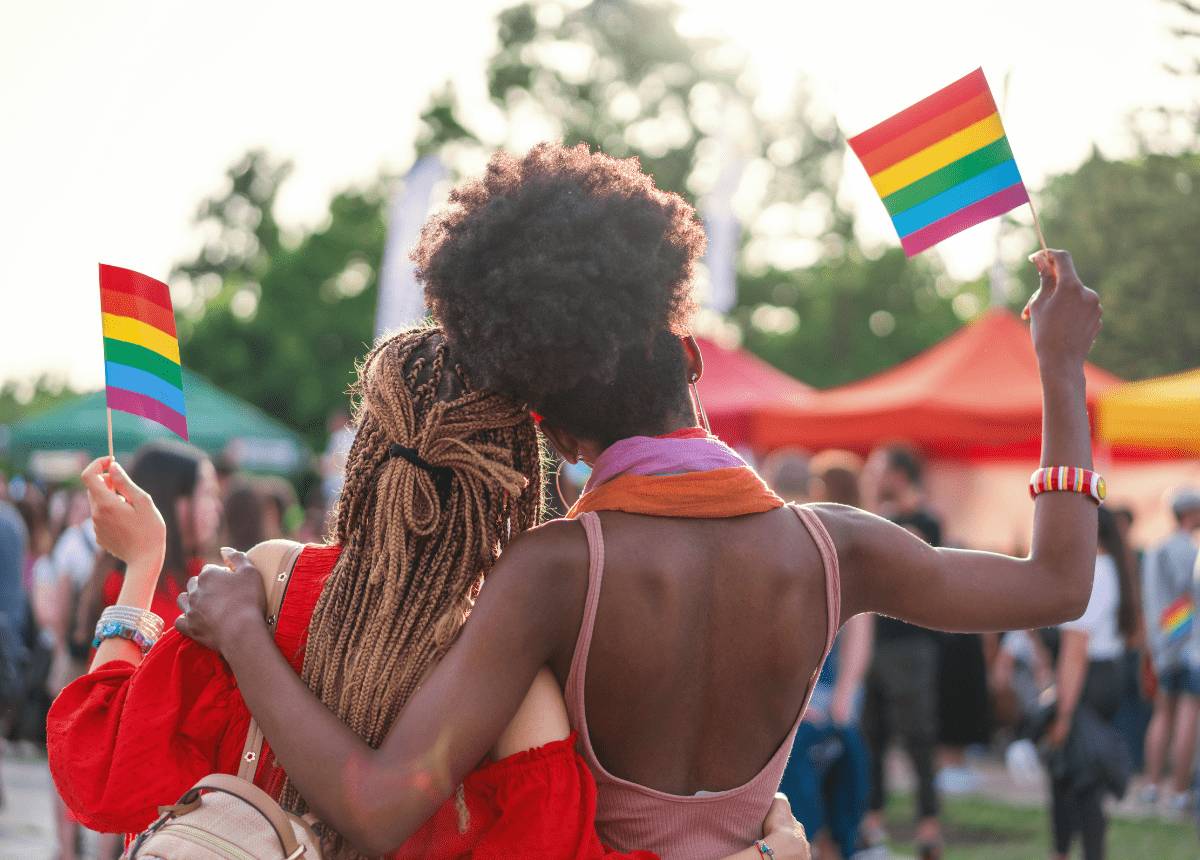
Don't send LGBTQI+ people seeking asylum to Rwanda
Rwanda is a dangerous place to be LGBTQI+, but the UK government plans to send people seeking asylum there.
The government has announced that it intends to send people seeking asylum in the UK to Rwanda to have their asylum claims processed there. This is extremely concerning for LGBTQI+ people seeking safety, as Rwanda is a dangerous place to be LGBTQI+.
Although same sex relations are not outlawed, there are no specific laws protecting LGBTQI+ people from discrimination and abuse. Rights like same-sex marriage or adoption and gender recognition for trans people do not exist. And there is widespread evidence of LGBTQI+ people being harassed, detained and beaten by security officials.
The UK Foreign Office’s own advice for tourists to Rwanda warns of “discrimination and abuse, including from local authorities”. And the situation for LGBTQI+ people there is so dire that Rainbow Migration has supported LGBTQI+ people from Rwanda seeking asylum here.
People who arrive in the UK seeking asylum have fled persecution or conflict, and sending them 4,000 miles away to a place where they have no connections will only cause them further suffering.
Sign the petition now to call on Priti Patel and Boris Johnson to abandon this shameful policy before it’s too late and to instead create a compassionate, caring asylum system.
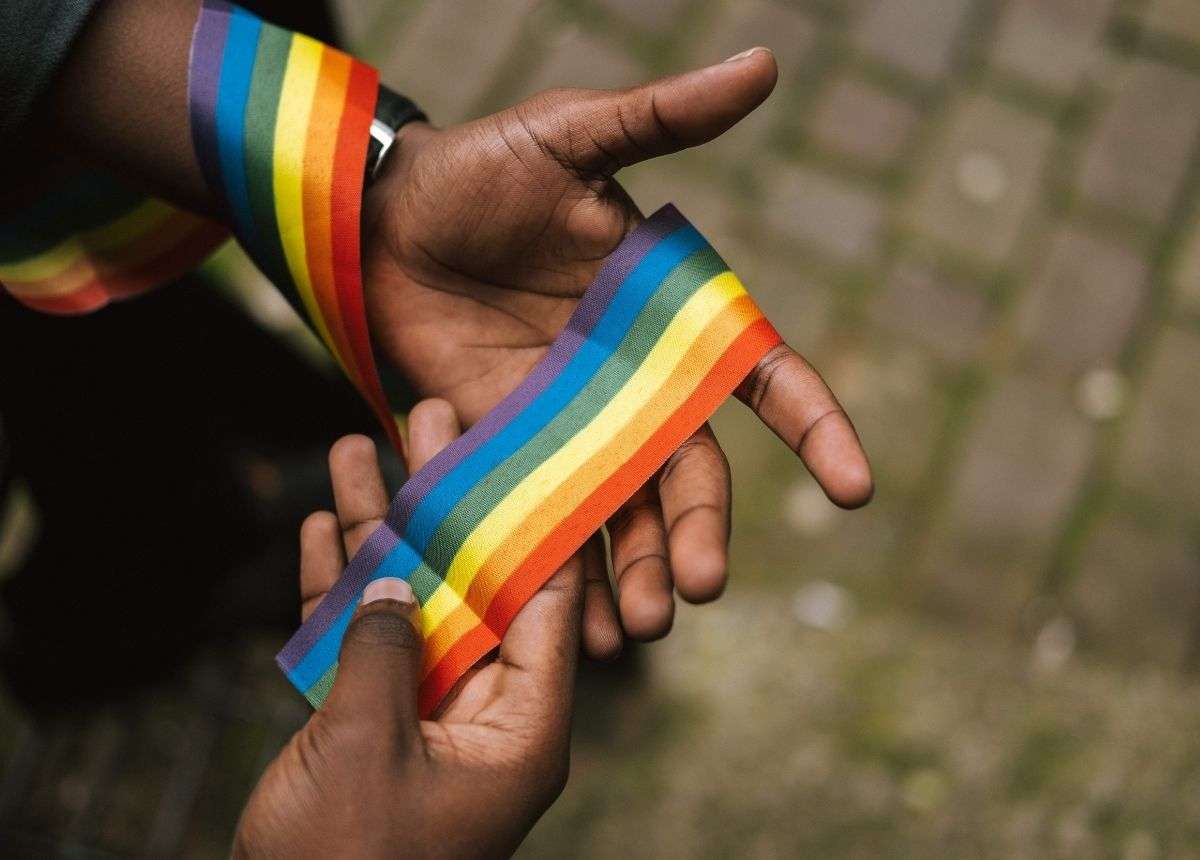
Open letter about plans to send people seeking asylum to Rwanda
Dear Prime Minister and Home Secretary,
As people with lived experience of the asylum system, refugee and migrants’ rights, anti-trafficking, human rights and civil liberties, access to justice, children’s rights, violence against women and girls’ (VAWG), arts and culture, international development, racial justice, criminal justice reform, democracy, data privacy and technology rights, disability rights, religious and faith, environment justice, and LGBTQ+ rights organisations and groups, we resolutely oppose the Government’s announcement regarding its plans to send people seeking asylum to Rwanda. This plan is fundamentally out of step with widespread public support for refugees in the UK. We demand that you scrap this plan, abandon the Nationality and Borders Bill, cease plans to overhaul the Human Rights Act and instead create humane and effective solutions for the protection of refugees.
Sending people seeking asylum to Rwanda will cause immense suffering, with the most vulnerable people bearing the brunt. This is a shamefully cruel way to treat people who have come to the UK to seek protection, fleeing persecution or conflict. The UK already accepts proportionately fewer refugees than many other countries. The relatively small numbers of people who seek asylum in the UK do so because they have some connection here – they may have family here, connections to a diasporic community, or English language skills. Many people come from countries that are connected to the UK because of war, invasion or colonisation. To send people seeking asylum to Rwanda is cruel and immoral, and is a breach of the Refugee Convention.
The proposals are modeled on the offshore processing policy operated by the Australian government in Papua New Guinea and Nauru, in which resettlement was essentially impossible and which was internationally condemned for resulting in the cruel, inhuman, and degrading treatment of refugees.
Rwanda has a poor record on human rights. Its government persecutes independent journalists and opposition parties, and carries out threats and assassinations on people who have fled the country. Only last year at the UN, the UK government itself demanded “investigations into alleged killings, disappearances and torture”. The UK government itself warned about Rwanda’s restrictions on media freedom and civil society as recently as last year. Further, the situation for LGBTQI+ people in Rwanda is so dangerous that people have fled and applied for asylum in the UK. In 2021, the UK granted asylum to four Rwandan refugees – three men and one woman – so it is contradictory to claim that it is safe to send people seeking asylum to Rwanda.
This plan will result in more, not fewer, dangerous journeys – leaving more people at risk of being trafficked. Rwanda was previously involved in receiving people removed from Israel under a “voluntary departure” scheme between 2014 and 2017. Around 4,000 people were deported under that scheme to Rwanda and Uganda and almost all are thought to have left the country almost immediately, many attempting onward travel to Europe. Testimonies collected by the International Refugee Rights Initiative found that following their arrival in Rwanda from Israel, “people were being smuggled out of the country by land to Kampala within days.” Moreover, we note the Government’s statement (in its Equality Impact Assessment for the Nationality and Borders Bill) that in relation to their plans to use deterrence to encourage people to claim asylum elsewhere, that “evidence supporting the effectiveness of this approach is limited”. Where people remain undocumented in the UK without making an asylum claim due to their fear of deportation, they will remain vulnerable to labour exploitation. This plays directly into the hands of exploiters who use threats of deportation as a means to deter their victims from coming forward to authorities.
The cost of this plan will be astronomical. Australia’s offshore detention system cost more than $1 billion per year to detain at most 3,127 people. The UK government has promised £120 million to Rwanda for a “trial”. This would be on top of the costs of detention, transportation, escorting and legal and administrative costs. It is ludicrous that such vast sums are being spent on this plan at the same time the government has refused to help people hit by the cost of living crisis. Moreover, the carbon footprint of hundreds of journeys to a country 4000 miles away will be immense and cannot be justified at this critical moment in the climate crisis.
The staggering lack of detail in these plans demonstrates to us how ill-thought through the policy is in terms of its implications and impacts on people, families and lives. For instance:
- Will people be forced onto planes going to Rwanda if they do not want to go?
- How will the government distinguish between those deserving residency in the UK and those in Rwanda? Will there be a legal procedure in the UK prior to any removal action being taken?
- Will vulnerable people, including torture survivors, survivors of trafficking, children, and people with serious mental health problems, be sent to Rwanda? Will people who are coming to the UK because they have family members here, be sent to Rwanda?
- Is it possible to claim asylum in Rwanda on sexual orientation and gender identity grounds – i.e. does Rwanda recognise LGBTQI+ people as being members of a particular social group under the Refugee Convention? If yes, how many cases on these grounds do they have per year and what is the grant rate?
- How will the government guarantee access to legal advice and representation and access to a court of law?
- Will there be any nationalities or categories of people that are excluded from being sent to Rwanda?
- Can the government confirm that people on arrival would be provided with means to support themselves, accommodation, food and clothing?
- Does the government’s repeated reference to ‘single men’ include those who have families that are still abroad and were hoping to be reunited under family reunion rules?
- What is the estimated cost per person of the plan to send people to Rwanda?
- What processes will be in place to identify and support victims of trafficking deported to Rwanda?The UK Government would, under law, remain responsible for protecting the people it sends to Rwanda from human rights abuses, including physical and sexual assault, persecution or cruel, inhumane or degrading conditions and treatment.Ultimately, these plans are fundamentally out of step with public attitudes towards refugees. While the Home Office has floundered in its response to Ukrainians and Afghans seeking safety in the UK, the general public has indicated that it welcomes refugees.The ultimate victims will be the most vulnerable in our society, who, in attempting to rebuild their lives after experiencing persecution, will be put at risk of experiencing further human rights abuses and taking their own lives. This will have a disproportionate impact on people from the Global South, who make up the majority of people arriving in the UK to claim asylum.This plan simply cannot pass – we urge you to scrap these plans and the Nationality and Borders Bill, which has not yet passed and has received strong opposition in the House of Lords. We also oppose the proposed overhaul of the Human Rights Act.Signed (we will send the letter on 14 April but keep updating this on a rolling basis)
Bail for Immigration Detainees
Liberty
The Joint Council for the Welfare of Immigrants
Rainbow Migration
Haringey Migrant Support Centre
Govan Community Project
Focus on Labour Exploitation
Good Chance Theatre
Loraine Masiya Mponela, CARAG
Race Equality Foundation
Big Leaf Foundation
Dr Edie Friedman, Executive Director, The Jewish Council for Racial Equality (JCORE)
Julia Rampen, Media Director, IMIX
West London Welcome
The Pickwell Foundation
Samphire
Waging Peace
Routes
William Gomes, Director, The William Gomes Podcast The William Gomes Podcast
Refugee Youth Service
Micro Rainbow
The Refugee Buddy Project
forRefugees
Anti-Trafficking Monitoring Group
Room to Heal
VITA
Ice and Fire Theatre
Asylum Support Appeals Project
Latin American Women’s Rights Service
Right to Remain
Voices in Exile
Our World Too
Stonewall
Taskforce on Victims of Trafficking in Immigration Detention
Asylum Welcome
Association of Visitors to Immigration Detainees
Young Roots
Praxis
Streets Kitchen
Kalayaan
Our Second Home
Migrants’ Rights Network
Jesuit Refugee Service UK
Medical Justice
Law Centres Network
Labour Exploitation Advisory Group
Jesuit Refugee Service
Herts for Refugees
Boaz Trust
Gatwick Detainees Welfare Group
Unlock Democracy
HOPE not hate
Refugee Compassion
Best for Britain
Souad Talsi MBE, Founder of Al-Hasaniya Moroccan Women’s Centre
Merseyside Solidarity Knows No Borders
Asian Women’s Resource Centre
Middle Eastern Women and Society Organisation-MEWSO
Refugee Action
Migrant Voice
Amna
Committee on the Administration of Justice
RAS Voice ( Refugee and Asylum Seeker Voice)
After Exploitation
Polish Migrants Organise for Change (POMOC)
Leicester City of Sanctuary
Sussex Aid For Refugees
Detention Action
Helen Bamber Foundation
End Violence Against Women Coalition
Freedom United
Southall Black Sisters
René Cassin, the Jewish voice for human rights
Unseen
René Cassin
Refugee Aid Network
Indoamerican Refugee and Migrant Organisation (IRMO)
African Rainbow Family
Action Foundation
Manchester Migrant Solidarity
Children England
People’s History Museum
Bond
Allies for Justice
National AIDS Trust
New Weather Institute
Legal Aid Practitioners Group
Sophie Hayes Foundation
Another Europe is Possible
City of Sanctuary UK
Open Rights Group
Stand Up To Racism
Race Equality First
UK Must Act
Kent Refugee Action Network
Sussex Aid For Refugees
Childrens Law Centre
Article 39
Asylum Aid
Asylum Matters
Refugee Legal Support
JustRight Scotland
Asylum Matters
Fair Vote UK
Stand For All
Hope for Justice
Trinity Safe Space
Quakers in Britain
Statewatch
Veecca for Fresh Grassroots Rainbow community
350.org
MERSEYSIDE REFUGEE SUPPORT NETWORK AND LIVERPOOL CITY OF SANCTUARY GROUP
Mona Adam for Shaman PR
Student Action for Refugees
Jubilee Debt Campaign
Teeslankas
Foxglove Legal
Together100 and Chorleywood4refugees
Street Talk
Birmingham City of Sanctuary
Care4Calais Liverpool
Unjust
Quaker Asylum and Refugee Network
Street Talk
RefuAid
Advice NI
RefuAid
The Snowdrop Project
BCHA (Bournemouth Churches Housing Association)
ECPAT UK
Share Knowsley
Scottish Refugee Council
Women for Refugee Women
St Vincent de Paul RC Church Justice & Peace group
Humanists UK
Methodist Asylum Project, Middlesbrough
Safe Passage International
Lifeline Options CIC
Disability Rights UK
Birmingham Schools of Sanctuary
Red Pepper magazine
Freedom from Torture
Solidarity with Refugees
Greenpeace UK
Mid Wales Refugee Action
Channel Rescue
Kanlungan Filipino Consortium
Citizens of the World Choir
Big Brother Watch
FODI (Sunderland)
Action for Refugees in Lewisham
Migrant Help
One Strong Voice
Medact
One September
Medaille Trust
Reading Refugee Support Group
Reading City of Sanctuary
St Agnes & St Aidan Parish
The Equality Trust
Shropshire Supports Refugees
INQUEST
Seraphus
No To Hassockfield (Derwentside IRC)
REACHE Northwest
Volunteer
People Not Borders
Runnymede Trust
BARAC UK
BARAC UK
JRAN
Human Rights Consortium Scotland
Nijjormanush
Migration Justice Project, Law Centre NI
Lewisham Refugee and Migrant Network
Cribs International
Farnham Help for Refugees in the UK and Abroad
Asylum link Merseyside
SOLA ARTS
Church and Peace
Refugees Welcome Crawley
Foundation ofJewish heritage and One Vision
Social Workers Without Borders
Defend Our NHS
Christian Brothers
Migrant English Project Brighton
Farnham Help for Refugees in the UK and Abroad
St Albans for Refugees
Humanity Aid
Derbyshire Refugee Solidarity
St Dunstan’s Catholic Primary School
Bekah Lucking
Humans for Rights Network
Voices in exile, brighton, trustee
Refugees Welcome Crawley
Women in Travel cic
Wansworth welcomes refugees
Brighton and Hove Freedom from Torture Supporters’ Group
IKWRO-Women’s Righrs Organisation
Farnham Help for Refugees in the UK and Abroad
Savera UK
Kalsi Solicitors
Ekklesia
Bristol Refugee Rights
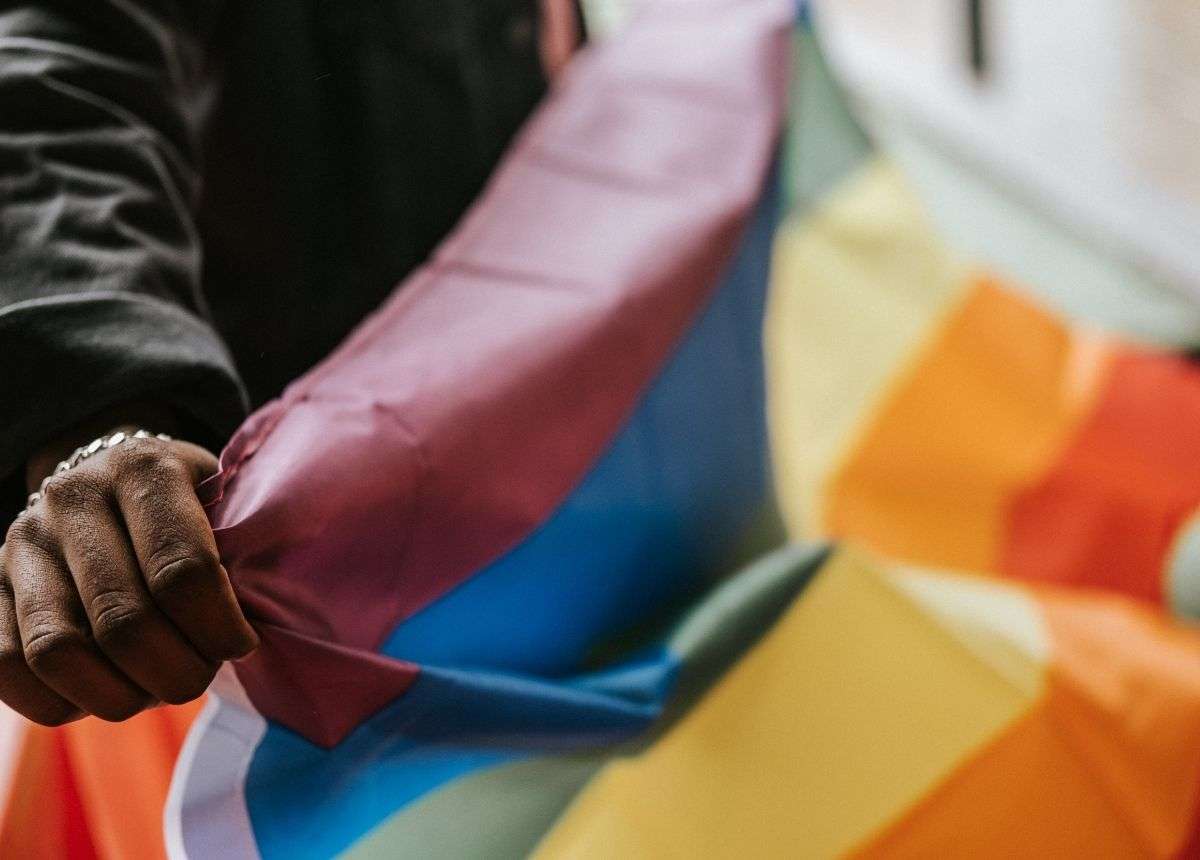
Proposals to offshore asylum claims to Rwanda will be harmful to LGBTQI+ people
The government is expected to announce on Thursday that they intend to send people who are seeking asylum in the UK to Rwanda and have their asylum claims processed there. A similar agreement with Israel resulted in most people who were transferred to Rwanda leaving, some subsequently making the dangerous journey to Europe. During that journey, people were trafficked and sold.
Last year, when Denmark passed a law providing for the offshore processing of asylum claims, outside the European Union, this was condemned by the African Union as “responsibility and burden shifting”. Despite this, this government has sought to introduce similar provisions in the Nationality and Border Bill.
The agreement means that LGBTQI+ people who have fled life-threatening situations in their home countries, and sought safety and protection from the UK, will instead be sent to a country where it is not safe for LGBTQI+ people to be open about their sexual orientation or gender identity.
There is widespread evidence of ill-treatment and abuse faced by LGBTQI+ people in Rwanda. For instance, Human Rights Watch reported last year that:
“Rwandan authorities rounded up and arbitrarily detained over a dozen gay and transgender people, sex workers, street children, and others in the months before a planned June 2021 high-profile international conference.”
“People interviewed who identified as gay or transgender said that security officials accused them of “not representing Rwandan values.” They said that other detainees beat them because of their clothes and identity. Three other detainees, who were held in the “delinquents’” room at Gikondo, confirmed that fellow detainees and guards more frequently and violently beat people they knew were gay or transgender than others.”
The situation for LGBTQI+ people in Rwanda is so poor that it is a source country for people seeking asylum in the UK based on their sexual orientation, albeit in low numbers, and Rainbow Migration has previously provided support to LGBTQI+ people from Rwanda.
Rainbow Migration has been warning for months of the risk that the Nationality and Borders Bill creates for LGBTQI+ people in particular. In relation to offshoring, the government has said that even where they consider a country to be safe, they will take specific vulnerabilities into consideration. In theory, this could act as a safeguard against LGBTQI+ people being placed into an offshoring process, however a person’s sexual orientation is already frequently and incorrectly disputed, and the Nationality and Borders Bill will make it even more difficult for a person to “prove” that they are, for example, gay.
In this context, and from our experience, we expect to see that where LGBTQI+ people do try to resist their removal to Rwanda, this government is likely to dispute that they are LGBTQI+ and will remove them anyway. We do not consider that there are adequate safeguards that can be put in place to prevent this, and we have not heard any proposals on how this government will avoid the harm that the agreement will cause to LGBTQI+ people. These proposals are actively harmful and an abdication of the UK’s responsibilities under the Refugee Convention, and they should be abandoned.

Rwanda is not safe for LGBTQI+ people
The government has announced that they intend to send people who are seeking asylum in the UK to Rwanda and have their asylum claims processed there. This will include LGBTQI+ people who have fled life-threatening situations in their home countries.
We find it extremely concerning as there is widespread evidence of ill-treatment and abuse faced by LGBTQI+ people in Rwanda. For instance, Human Rights Watch reported last year that:
“Rwandan authorities rounded up and arbitrarily detained over a dozen gay and transgender people, sex workers, street children, and others in the months before a planned June 2021 high-profile international conference.”
“People interviewed who identified as gay or transgender said that security officials accused them of “not representing Rwandan values.” They said that other detainees beat them because of their clothes and identity. Three other detainees, who were held in the “delinquents’” room at Gikondo, confirmed that fellow detainees and guards more frequently and violently beat people they knew were gay or transgender than others.”
Nizeyimana Seleman, Executive Director of Hope And Care Organization, a Rwandan group that works to increase educational opportunities and health services to LGBTQ youth and sex workers, is quoted as saying that: “Homosexuality is not criminalized in Rwanda, but many LGBTI people keep their sexuality and gender identity secret in an attempt to avoid rejection, discrimination and abuse, which in the long run inevitably denies them their basic human rights.”
The situation for LGBTQI+ people in Rwanda is so poor that it is a source country for people seeking asylum in the UK based on their sexual orientation, albeit in low numbers, and we have previously provided support to LGBTQI+ people from Rwanda.
The worrying reports come after last week, the House of Lords confronted MPs for a second time and amended the Nationality and Borders Bill again. On offshore processing, Lords’ amendments made it a requirement for the government to name the country where they plan to send people seeking asylum as well as to reveal the cost of the plans, and to obtain approval from Parliament before proceeding.
These amendments won’t solve all the issues with the Bill, but they will certainly make this government think twice before sending LGBTQI+ people to remote offshore asylum camps.
It is therefore essential that we keep the pressure on MPs until the 20 of April, when the Nationality and Borders Bill returns to the House of Commons.
We are asking MPs to use their vote to protect LGBTQI+ people seeking asylum, and to support the Lords amendments on offshore processing . Will you help by writing to your MP?
You can find your MP and their email address on the parliament website and below is a template email you could use. Make sure that you include your full name and address at the bottom of the email to show you are a constituent – otherwise your MP is unlikely to respond.
Dear {MP NAME},
As one of your constituents, I am writing to you today because I am concerned about the effects that the Nationality and Borders Bill will have on LGBTQI+ people seeking asylum in the UK.
I understand that the government is proposing to send people who come to the UK seeking safety from persecution to Rwanda to process their asylum claims offshore. For LGBTQI+ people seeking asylum, this will be a disastrous policy – there is widespread evidence from Human Rights Watch and others that LGBTQI+ people face discrimination and abuse in Rwanda and may have to hide their sexual orientation or gender identity. We cannot allow people who have fled persecution because they are LGBTQI+ to be sent offshore and put in further peril.
I am asking you to help stop this from happening by supporting Lords amendments 53B, 53C and 53D when the Bill returns to the House of Commons on the 20 of April 2022.
Please let me know how you will vote on these amendments and if there is anything else you can do to help stop this from happening.
I look forward to hearing from you.
Yours sincerely,
{YOUR FULL NAME AND ADDRESS},
